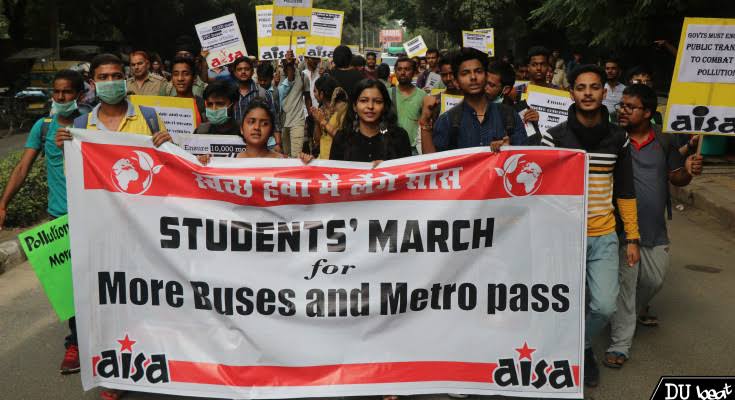The Right to Vote is imperative, but exercising the same is not easy, given the technicalities associated with it. This piece brings you the procedure, of how an outstation student can exercise their Right to Vote in the Capital, where they study.
On 11th January, the last date for registering as a voter in Delhi, the students of St. Stephen’s College organized a drive to aid the outstation students in including their names in the electoral list, this piece is in respect to the drive, formulated a guide for outstation students to vote in Delhi.
1. You can cast your vote once you have a voter ID card and your name enrolled in the electoral roll. In case you do not have a voter ID card, register on the national voter’s service portal (www.nvsp.in).
2. For an outstation student, Form 6 (which is available on the National Voters’ Service Petrol (NSVP) website) needs to be filled online.
3. The most important part is the address proof, which depends on the student’s place of residence. For students residing in college hostels, Annexure IV needs to be scanned and uploaded. The Annexure IV is a declaration for students living in hostels, which is to be ratified by the Dean or the Principal, depending upon
the type of institution. For students living elsewhere, a copy of rental agreement passes muster.
4. The documents involved in the process are imperative as well. An Aadhar card or any equivalent document is required to ascertain the age of the applicant. The address of a student is important as well, and Annexure IV or rental agreement are the two ways to go about it.
5. After registering your name, address, proof of age and residence, you will be given an application number. A text message on the contact number provided by you will confirm the registration.
6. On the day of voting, go to the nearest polling booth of your constituency. The voting time is usually from 7 am to 5 pm.
7. Once inside the booth, a polling officer will check if your name is present in the list and verify your details with your votercard.
8. You will be inked by another polling booth officer and handed a slip. Then you will be asked to sign against your name in a register, which is the Form 17A.
9. A third officer will check if you have been inked on either of your index fingers. He or she will then forward you towards the Electronic Voting Machine (EVM).
10. Once you stand across the EVM, you will find buttons against candidates and the party that they represent, listed. NOTA or none of the above will also be one of the options available.
Evita Rodrigues, one of the organisers of the drive at St. Stephen’s College said, “Sometimes it’s easy to underestimate the value of single registration and thereby a single vote. The entire process of and the effort it entails can often be discouraging. We were able to help nearly a hundred students fill the online form on extremely short notices and help around thirty non-teaching staff apply fresh or for corrections in existing cards.”
But why is this important at all? The answer lies in the policies created by the
Delhi Government. These students, like others, must have the power to elect a government that shall frame policies for their betterment. It is important for every student to exercise their political rights, which benefits both the students and the state.
In a state like Delhi, where the students are a major stakeholder, it is important to aid them in exercising their political rights. Students across Delhi and elsewhere should make endeavours to do what Evita and others did in St. Stephen’s College. Students, therefore, have the onus of extending political rights among themselves, as well as others in our society.
Feature Image Credits: Evita Rodrigues
Kuber Bathla











